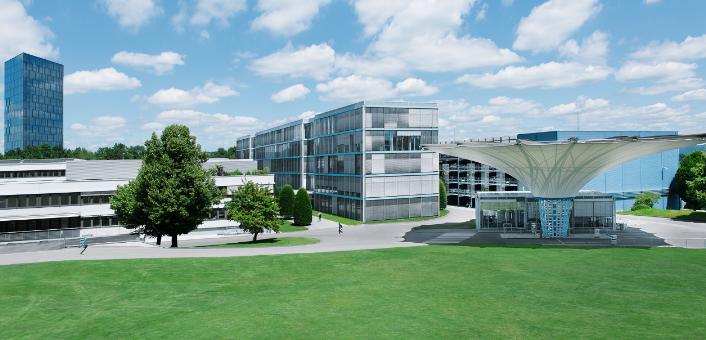
Festo credits digitalisation for record growth in 2017
Festo recorded an increase in sales of over 12% to approximately €3.1 billion for the 2017 financial year. This positive development continued into the first quarter of 2018. The strongest driver of growth was the electronics industry.
With the “digital customer journey”, the company is placing the customers at the focus of its digitalisation strategy and is launching the first digital products on the market this year.
Festo reinforced its technological standing in late 2017 with the appointment to the Management Board of Dr. Frank Melzer, who will further advance the digitalisation of the core business and the future-oriented industries. The global workforce grew to 20,100.
Festo concluded the 2017 financial year on a very successful note. With sales of approx. €3.1 billion, the target of €3 billion was clearly surpassed, despite negative currency effects in the course of the second half-year.
Festo thus grew by over 12% against the previous year. As before, the company registered most of its sales in the core market of factory automation.
“2017 was a record year for us, with very good results. We are proud of this accomplishment by our employees throughout the world,” said Management Board Spokesman, Alfred Goll.
“Aided by an excellent global economic situation, we have grown not only in our domestic market of Europe, but also especially in our strategic growth markets in Asia and America. We have thereby created ideal conditions for further growth in 2018,” he added.
The core markets, such as automotive and the food industry, contributed to this growth along with the new business fields. The company particularly benefited from the rapidly growing market of the electronics industry.
“This shows that we have set the right strategic course for the future. Our greatest opportunities for growth lie here,” said Mr Goll.
The business sectors Electric Automation, Process Automation, and LifeTech with medical engineering and laboratory automation, also developed very dynamically.
With 21%, the region of Asia showed the strongest growth over the previous year’s figure, followed by the Americas with 13% (USA 15%) and Europe with 10%. The company also achieved record sales in the domestic German market (+10%) and was able to further extend its leading market position.
China was the most important growth market worldwide, with an increase of 32%; both the electronics industry and the automotive sector were marked by very strong growth in that country.
Festo Didactic further extended its training offer for Industry 4.0 in 2017 and reinforced its key position in this segment worldwide.
Last year, Festo invested strongly in the development of its global production and logistics capacities and in digitalisation.
Around 8% flowed into the research and development of new products, applications and services, as in the previous years. The company is thereby securing its innovation and technological leadership for the long term.
New appointments likewise focused on the growth topics of digitalisation and the establishment of additional capacities at the various plants.
An overall workforce of 20,100 (previous year: 18,800) worldwide was employed at the end of 2017, including 8,800 in Germany (previous year 8,500) and 11,300 in the Festo companies abroad (previous year: 10,300).
Festo is strategically addressing the topic of digitalisation as part of its LEAD Strategy and created a new area, Digital Business, in 2017.
“Digitalisation is a substantial component of our corporate strategy. With digitalisation, we are pursuing four objectives: we want to increase productivity for ourselves and our customers, sell added-value services, secure growth and extend our innovation leadership,” said Mr Goll.
Festo is driving digitalisation forward with its current product range, new digital products and services, new business models, the digital customer journey, the establishment of a digital infrastructure in the company’s own value-added processes and by means of new working environments and qualification 4.0 for its employees and its customers.
“Digitalisation, e-mobility, robotics and artificial intelligence are trends that are substantially determining our business and that of our customers,” said Dr. Ansgar Kriwet, Member of the Management Board Sales.
“We are not just speaking about IoT-capable products here, but about the entire digital customer journey – from a customer’s very first enquiries, through the engineering, up to commissioning and servicing. By this means we can make our customers’ production processes leaner, faster and more productive.”


